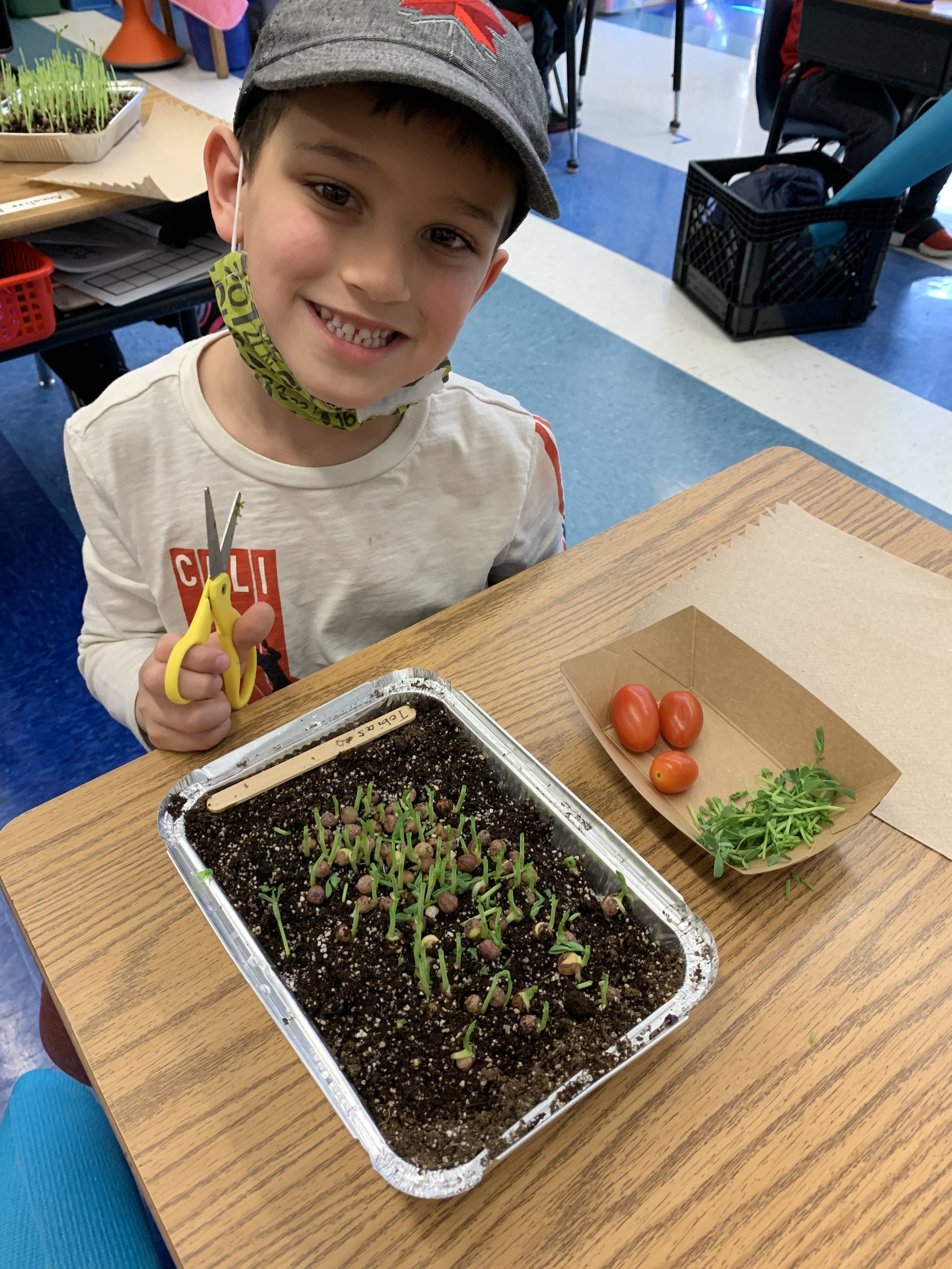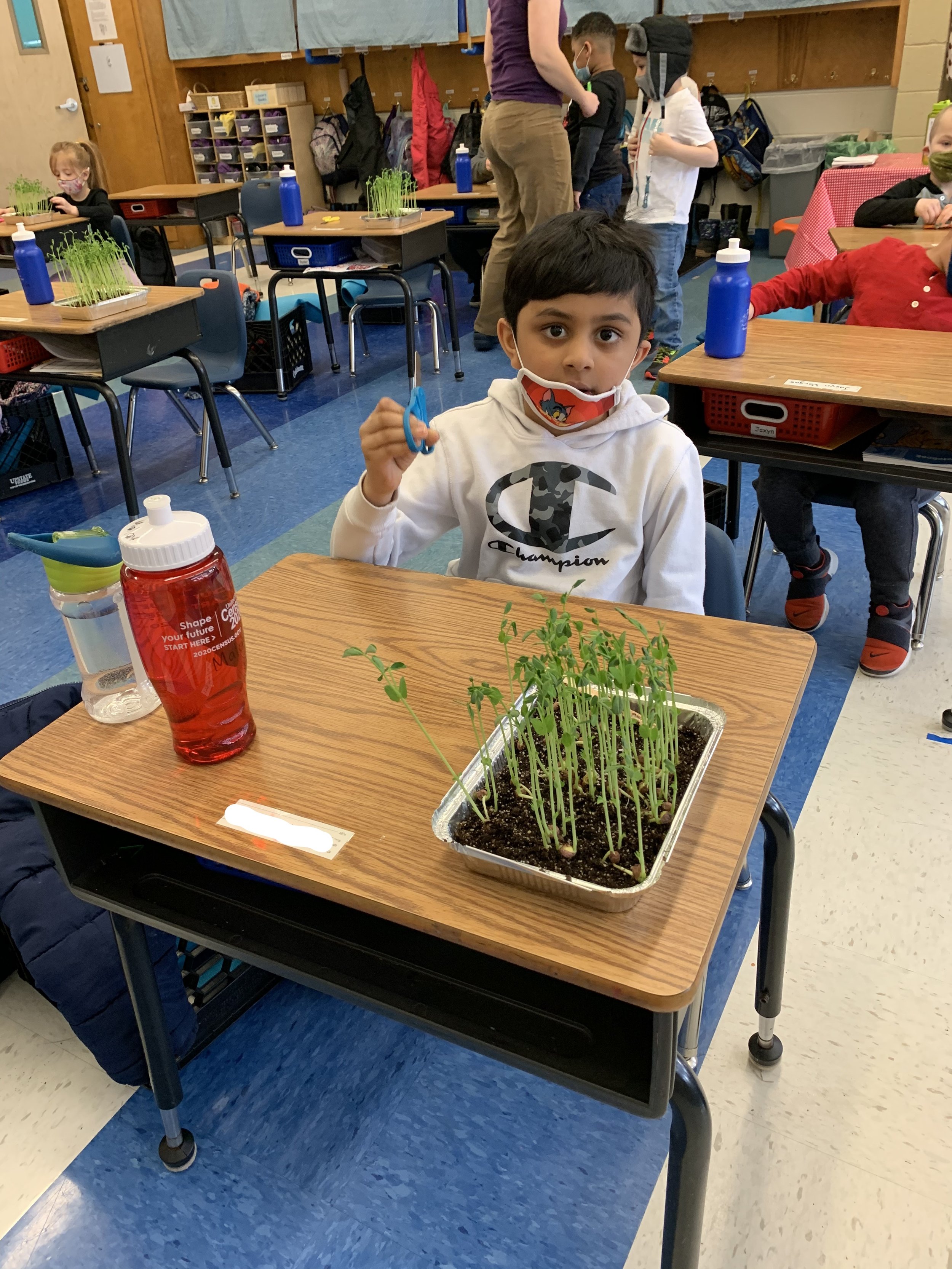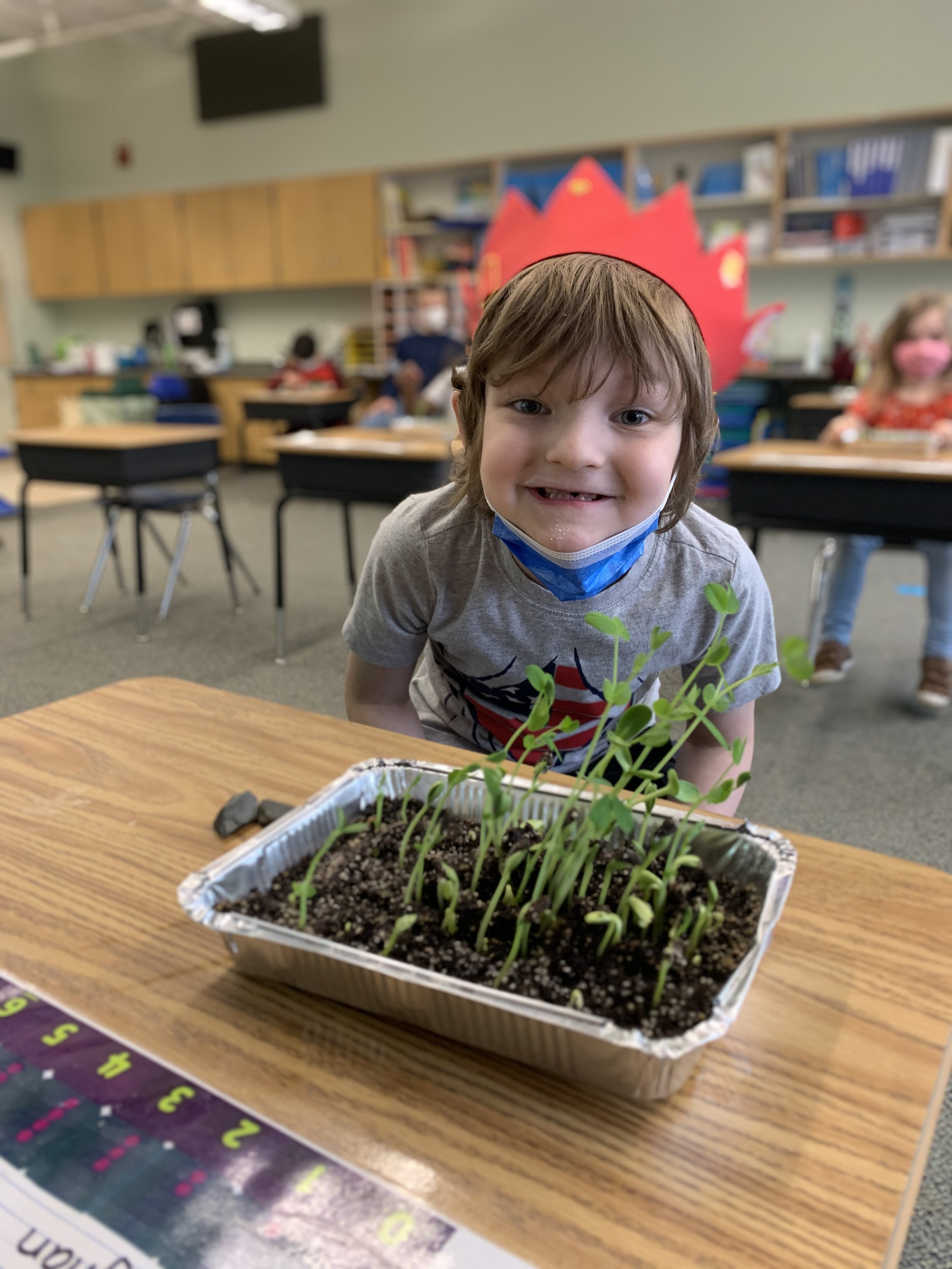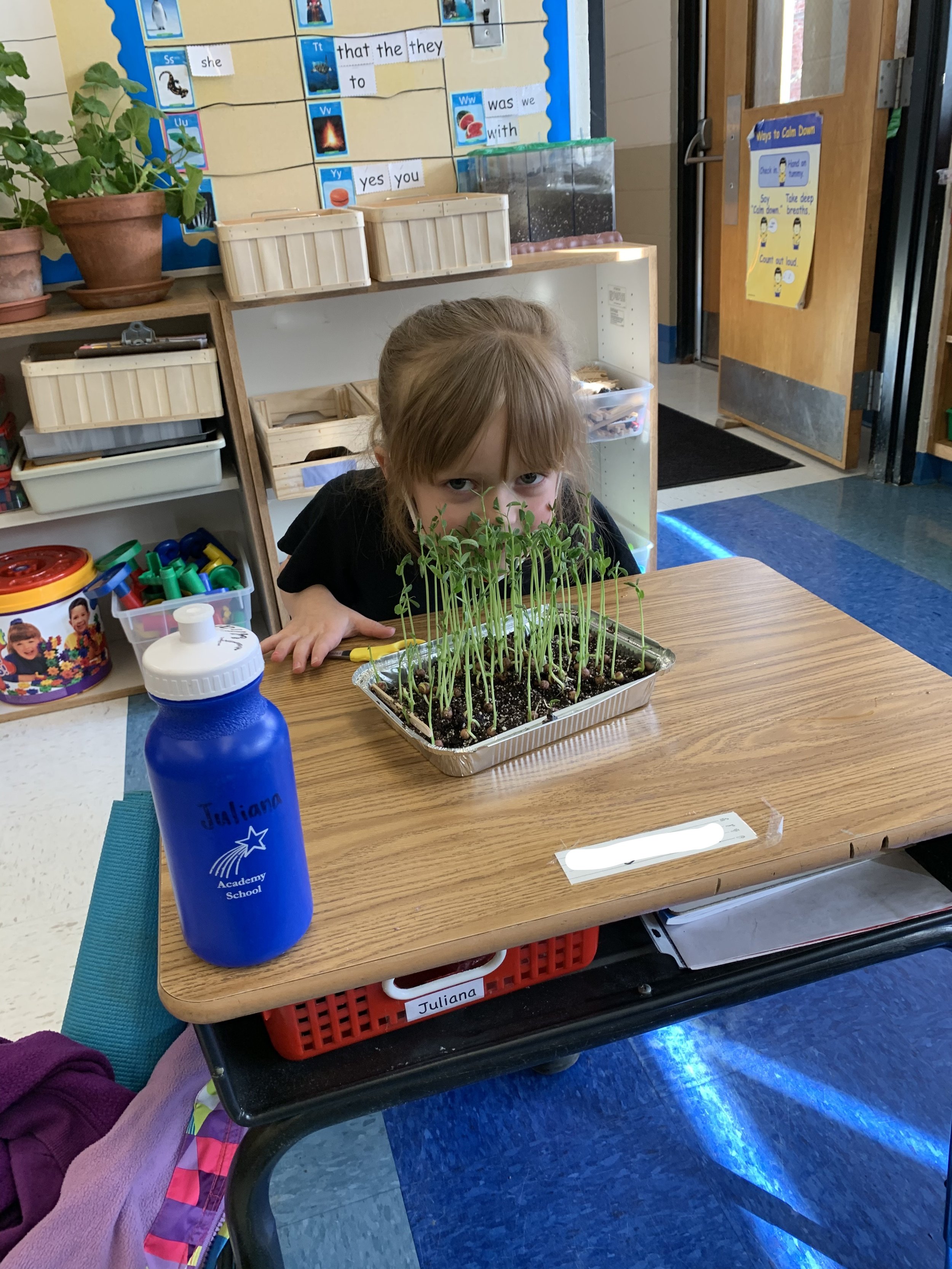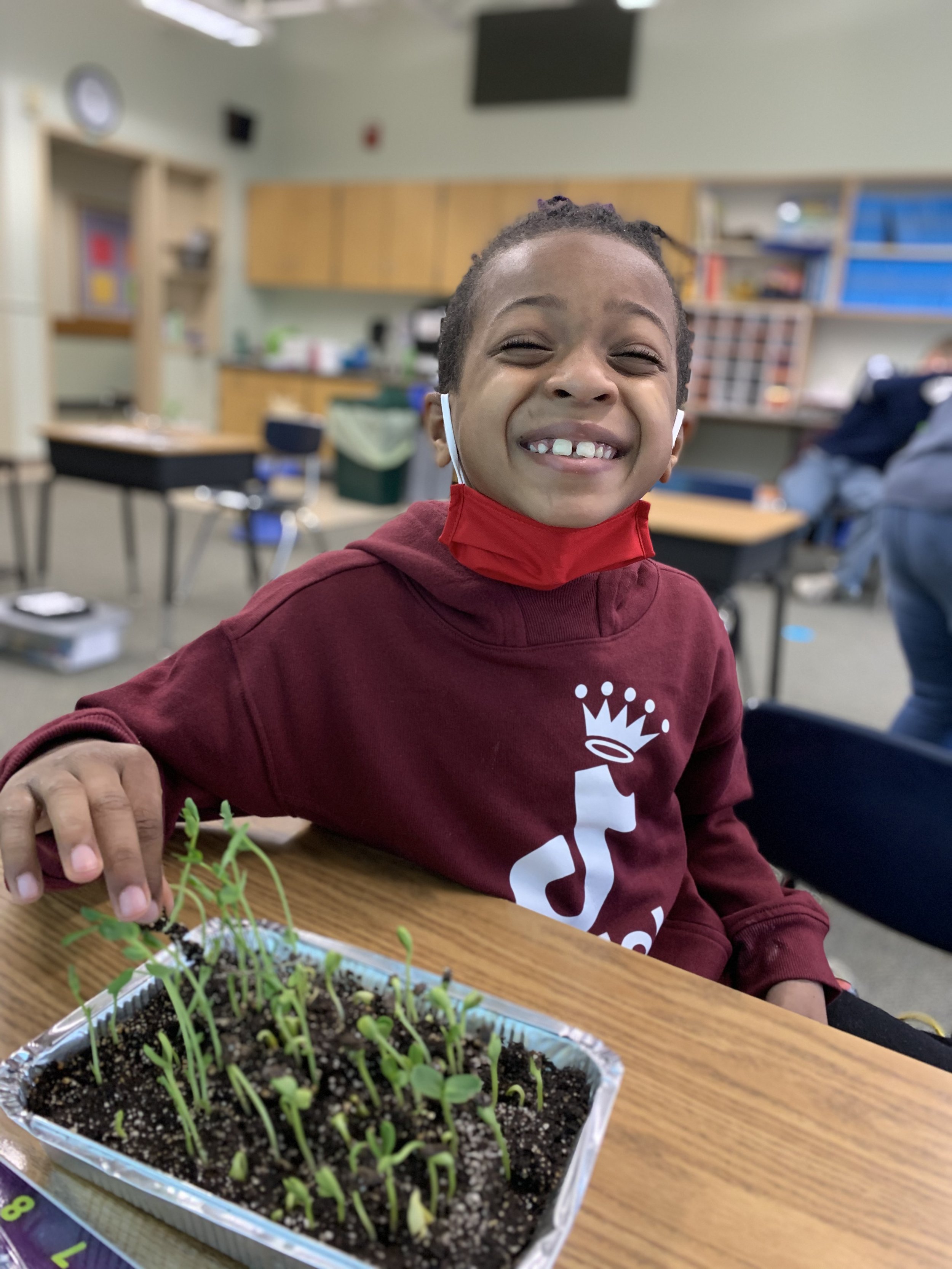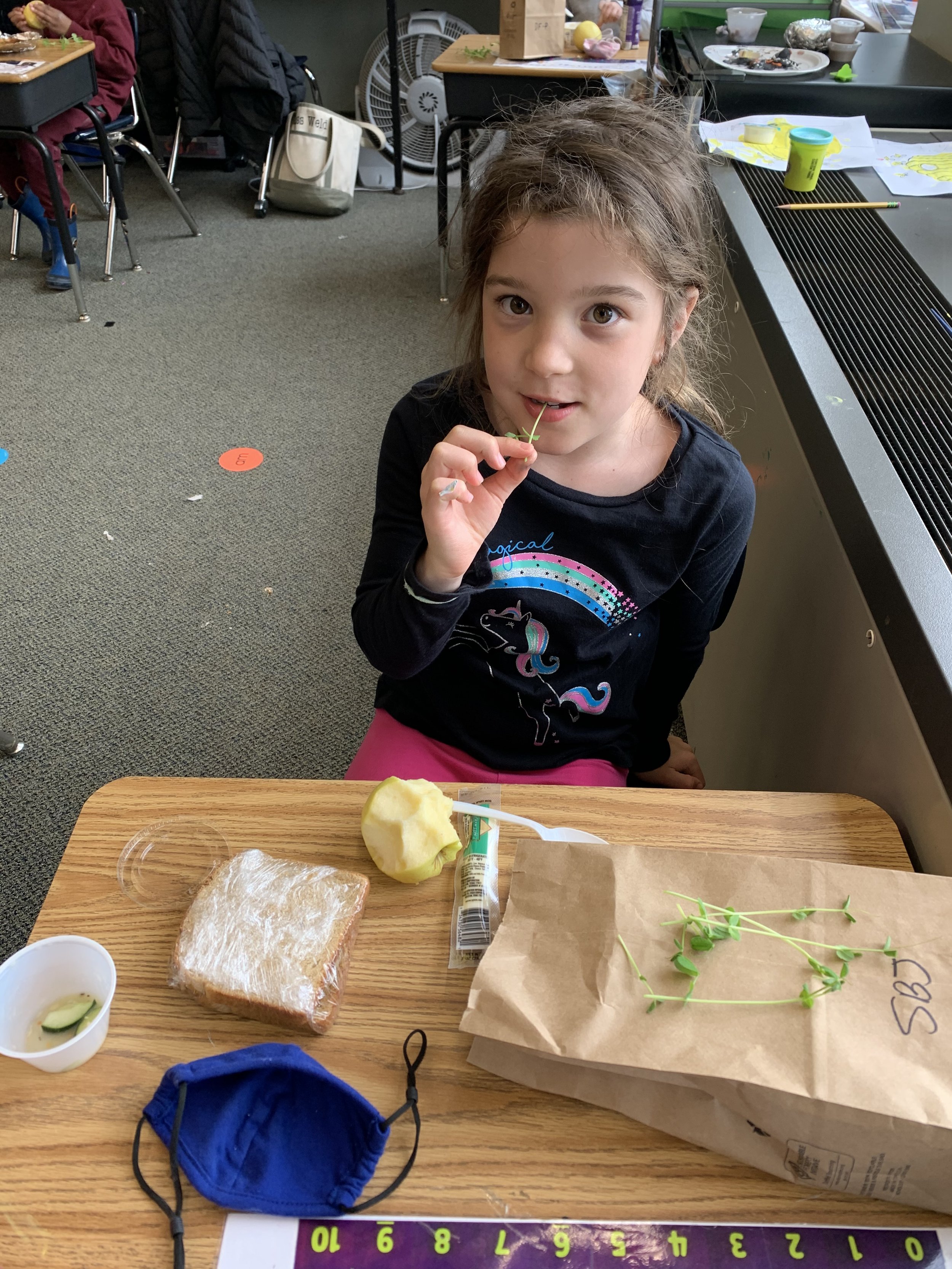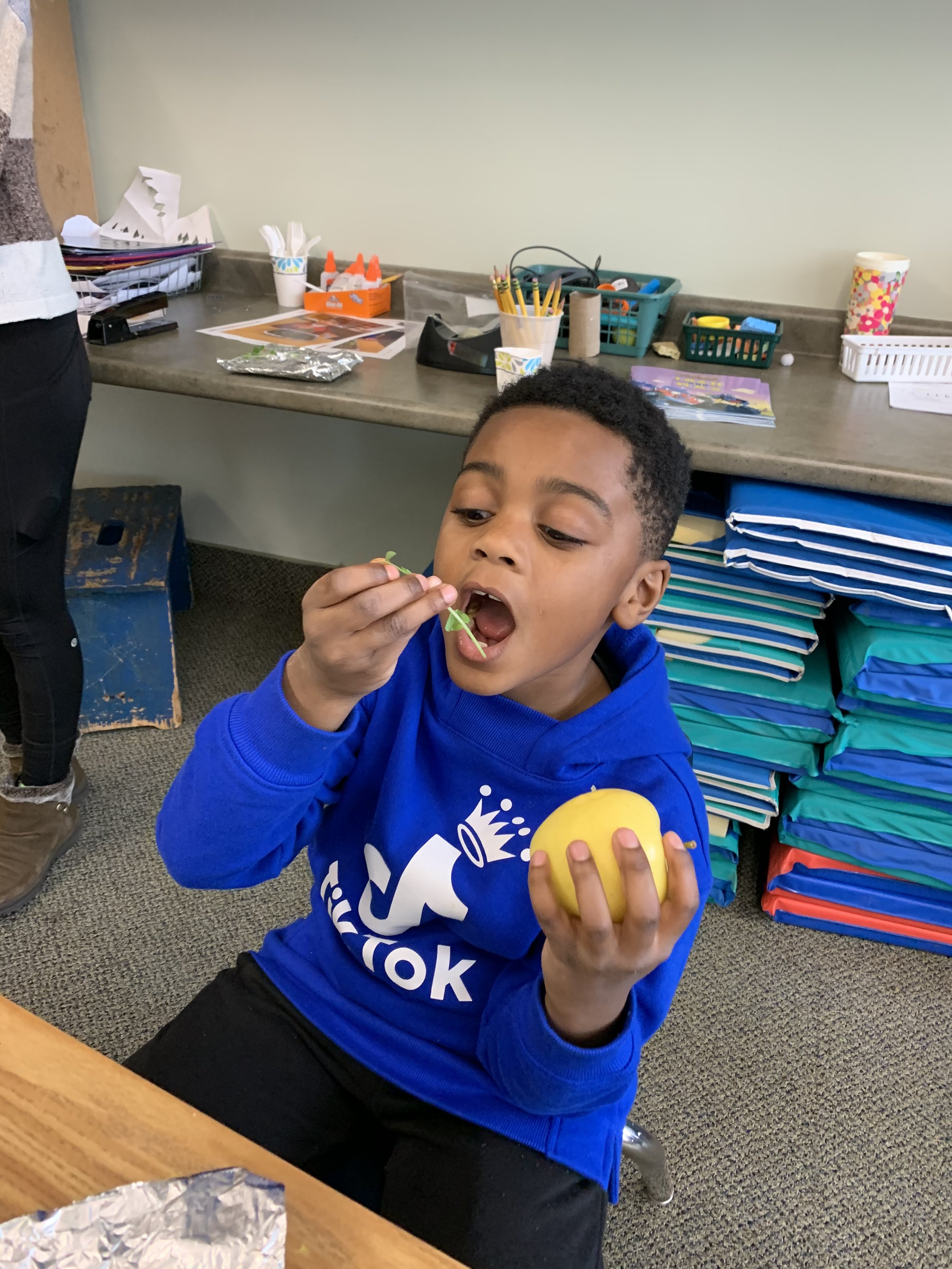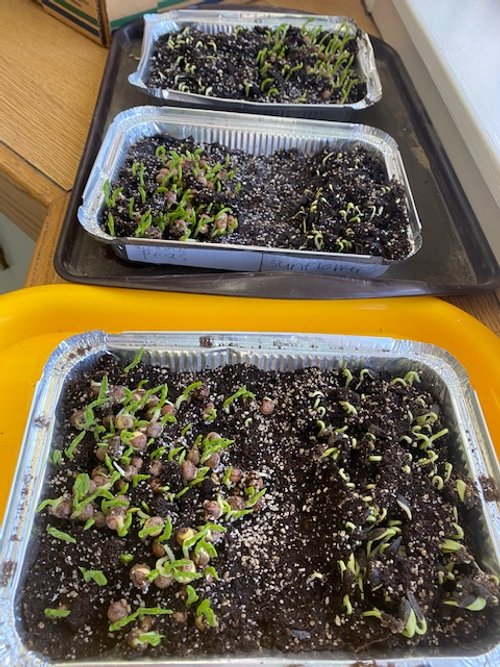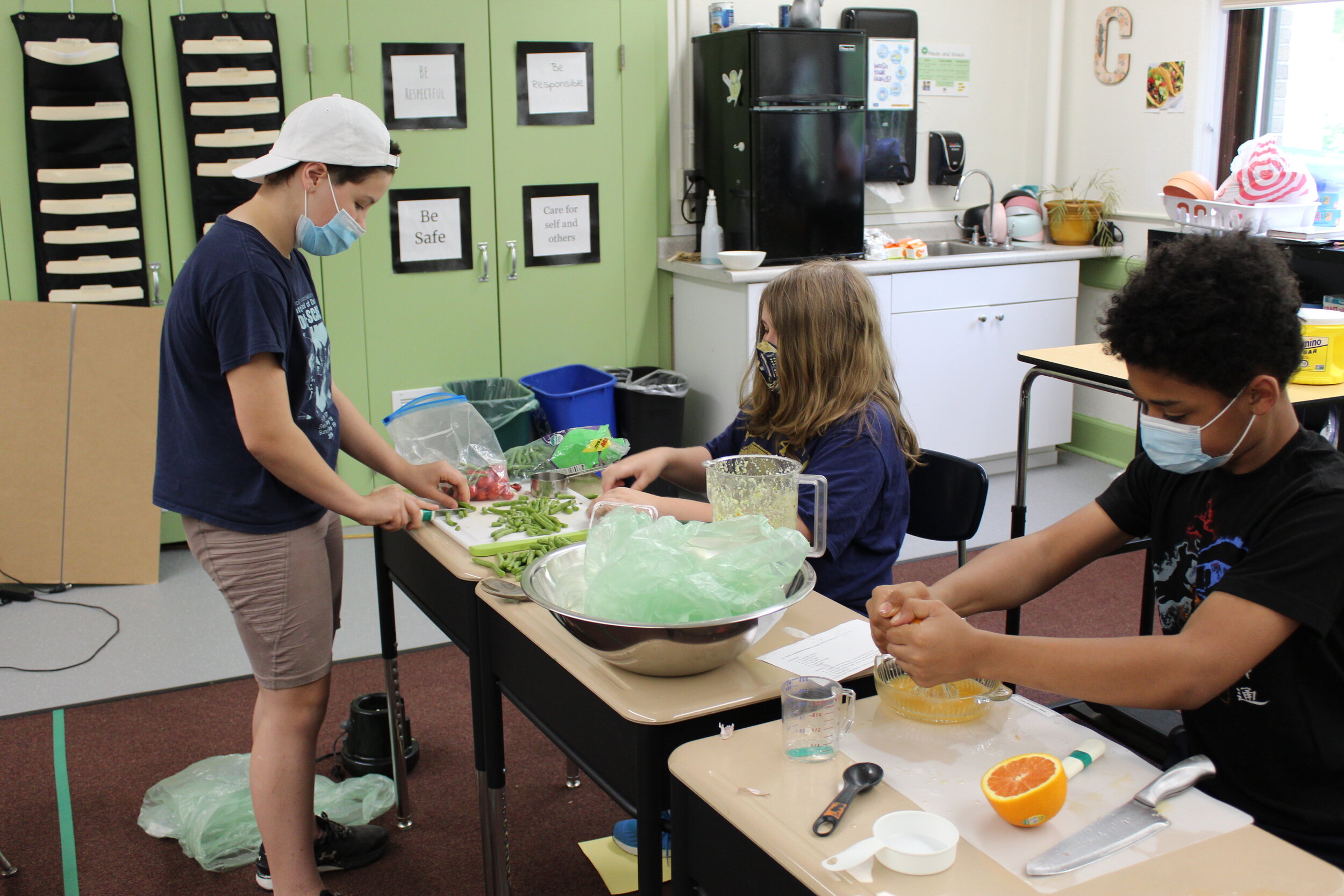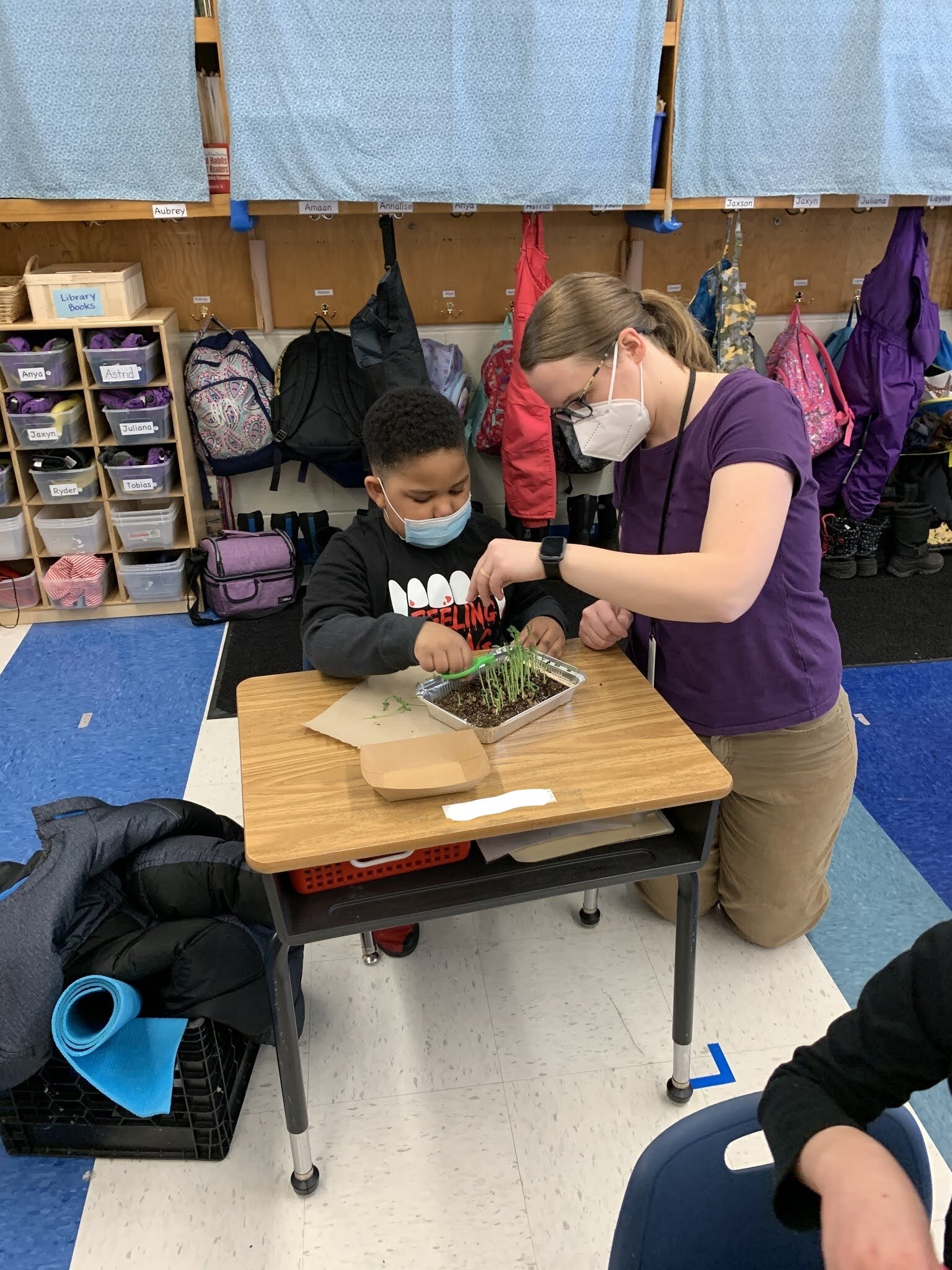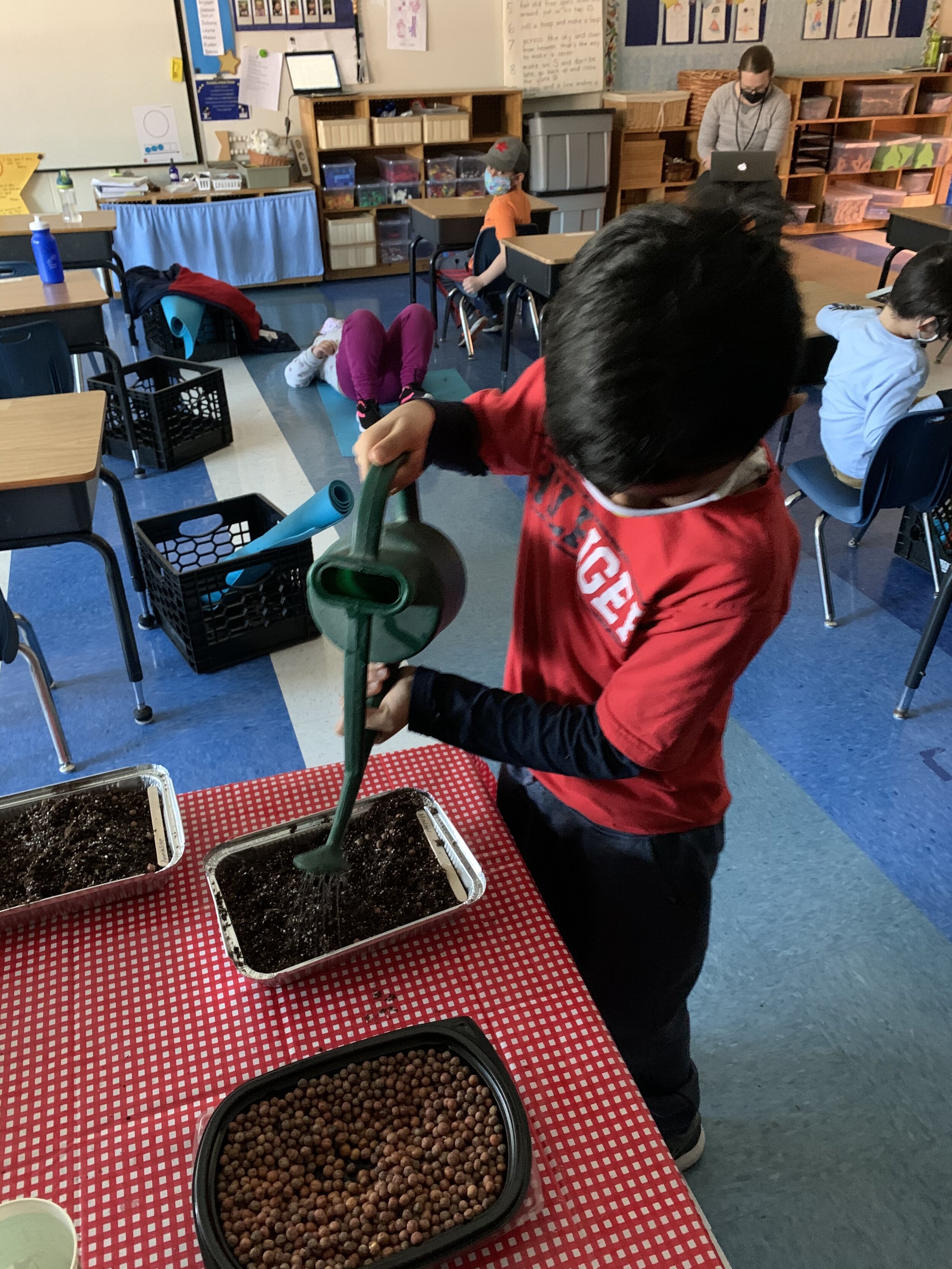Our popular classroom sprouting kits are back!
In the winter of 2021, we were looking to engage classrooms in Farm to School programming. We dusted off the archives of some old projects and decided to try out sprouting kits. And oh boy, was it a hit.
Sprouting kits seem pretty simple: each student gets an aluminum tray, some soil, growing instructions, and sunflower or bean shoot seeds. But multiply that number by 800—the amount we delivered to schools across Windham County in 2021—and it goes from a simple project to one that has a significant impact on our community. Imagine 800 students across the county taking care of their seeds, watching them grow, and taste testing them in a few short weeks!
And the sprouting kits were a huge success last year. Teachers could have a pre-packaged lesson planned that was easy to implement in their classrooms. Farm to School and gardening activities might be challenging for some teachers to implement in the cold winter months. This indoor activity enables all students access to farming and nutrition education, even when the school garden might be dormant. This hands-on opportunity to learn about planting seeds prepped the students for their spring school garden work and got many students excited about growing their food.
Because of the huge response to this program last year, Food Connects relied heavily on donations from our corporate sponsors like the Brattleboro Automall. The Brattleboro Automall feels a special responsibility to serve our local community and support local groups and events whenever possible. We are grateful for their continued support of our Farm to School program and ensuring we can continue to provide these excellent sprouting kits to the children in our local schools!
We are excited to announce that sprouting kits requests are now open for 2022.
We hope that bringing back our Sprouting Kits helps provide an opportunity for hands-on growing in your classroom. We will provide all of the materials, a lesson guide, and coaching from our FTS team to make sure you feel confident implementing this activity in your classroom. It could potentially tie into your science unit, be a primer for more growing projects this spring, or simply be a fun, hands-on activity for your students.
Food Connects will deliver classroom kits to your school that contains:
Aluminum trays for each student to grow their sprouts
Soil
Seeds (sunflower and pea)
Growing instructions
An optional lesson guide and book recommendations to pair with the activity




